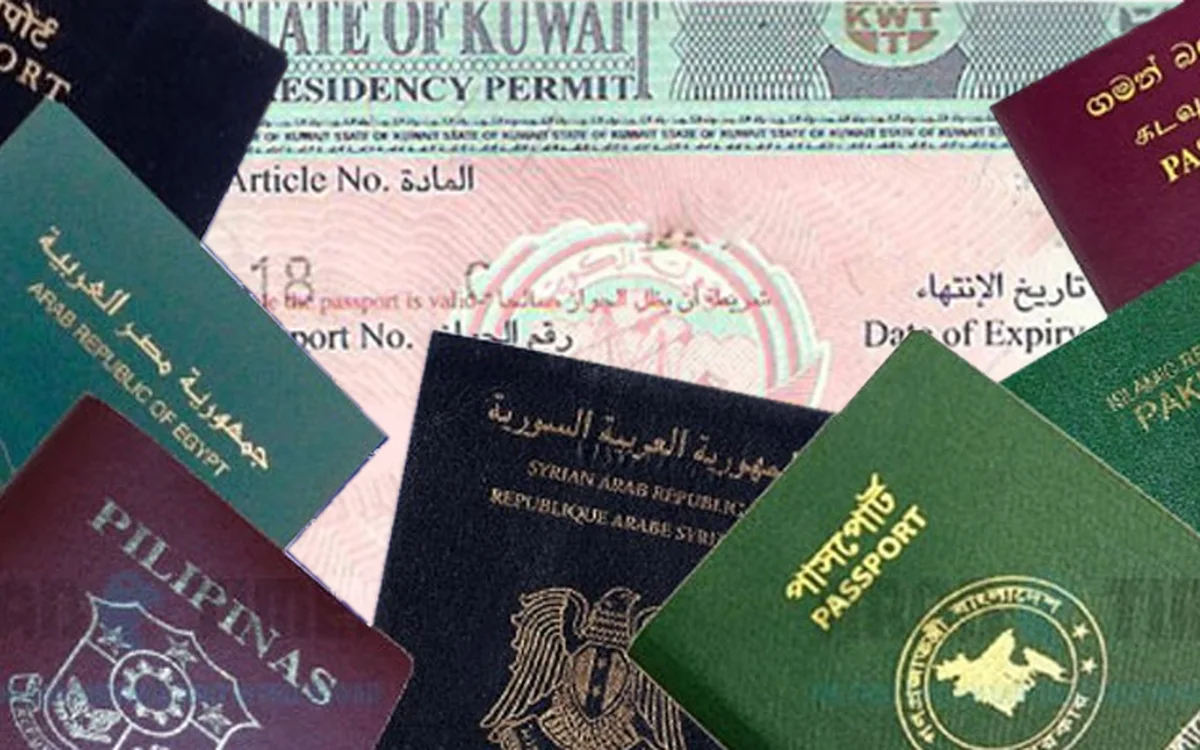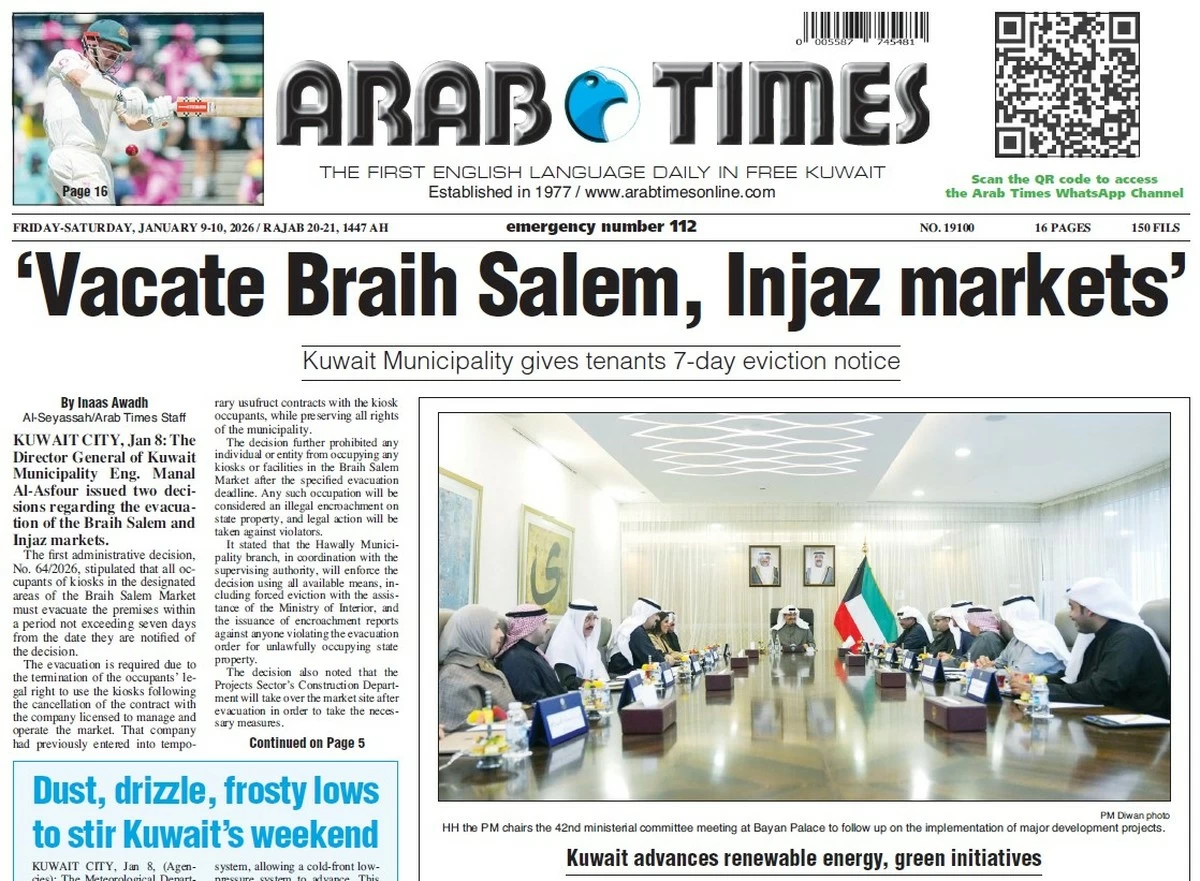30/08/2025
30/08/2025

As one worker told Arab Times: “We only find out what visa we hold when we try to change jobs. By then, it’s already too late.”
Many expatriates arriving in Kuwait in search of work are handed an Article 18 visa under the impression that it grants them the same rights and mobility as any other private-sector work permit. What they often don’t realize until much later is that not all Article 18 visas are alike. Some fall under categories with severe restrictions on job transfers, limited opportunities for career growth, and conditions that can leave workers feeling trapped.
Arab Times has received numerous queries and complaints from expatriates who say they were misled or inadequately informed, urging newcomers to exercise caution and understand the fine print before accepting an Article 18 visa. With little clarity in official channels and many recruiters failing to disclose the differences, foreign workers risk stepping into Kuwait’s labor market without fully grasping the challenges and limitations that come with their visa type.
1. Private Company Article 18 Visa
This is the most common type of work permit for expatriates employed in the private sector. At first glance, it appears to be the most flexible category. Workers sponsored under a registered private company can transfer to another employer by serving a three-month notice, provided their contractual obligations are fulfilled. Unlike other Article 18 subcategories, this visa generally allows movement across industries and offers protections under Kuwait’s labor law, including fixed working hours, leave entitlements, and end-of-service benefits.
The Catch: Not every visa labeled “private company” is truly transferable. Some workers discover—too late—that their visa falls under one of the more restrictive subcategories, limiting their options.
How it's obtained:
- Requires a job offer from a registered private-sector company.
- Sponsor files for the work permit with the Public Authority for Manpower (PAM), then the residency visa and Civil ID are issued via MOI and PACI
- Applicants must submit documents including passport, job offer, medical report, police clearance, sponsor’s documents, etc.
Transfer Rules:
- Offers greater flexibility—transfer is permitted after giving a three-month notice
- Full transfer without three years’ tenure is allowed.
- Standard labor law protections apply, including defined working hours, leave, etc. (source: general Article 18 information)
2. SME / Small-Scale Project Article 18 Visa
Often referred to as the small-scale project visa, this category is issued by small enterprises and business ventures. On paper, it looks like a regular Article 18 permit, but the rules are far more restrictive. Workers on SME visas can only transfer employment within the same category and only after completing three years of service with their sponsor. In practice, this makes career growth extremely difficult, as very few small-scale businesses are in a position to hire or absorb additional staff.
The Catch: Because these visas aren’t clearly marked, many expats only realize they hold an SME visa when they attempt to change jobs and are denied. By then, valuable years of their professional life may have already been lost.
How it's obtained:
- Issued by small enterprises—often without clear labeling on documentation that distinguishes them from regular Article 18 visas
Transfer Rules:
- Transfers are highly restricted:
- Only within the same small-scale project sector.
- Transfer only permitted after three years of service, as per PAM resolution No. 712/2017
- Very few opportunities to transfer beyond that due to scarcity of similar employers and limited hiring capacity
3. Project Visa (Article 18 – Project)
The project visa is tied to large-scale contracts—often in construction, oil, and infrastructure sectors—where companies recruit staff specifically for government-approved or privately funded projects. Workers hired under this category are bound to the project for its duration, with no transfers permitted during the first three years. Even after the contract ends, moving to another company requires multiple layers of approval: employer consent, confirmation that the project has officially concluded, and in many cases, a KD 350 transfer fee. Without this, expatriates may be forced to leave Kuwait and re-enter under a new sponsor.
The Catch: While project visas were designed to prevent sudden labor shortages, in practice, they have created bottlenecks, trapping employees who want to explore better opportunities.
How it's obtained:
- Issued for a defined project, often tied to a contractual arrangement (e.g., oil, construction, infrastructure projects)
Transfer Rules:
- Strictest restrictions among the three: No transfers allowed during the first 3 years of the contract
- Recent update (as of November 3, 2024):
Transfers to the private sector are possible—but only if:
- The project contract has officially ended.
- The employee has completed at least one year with the current sponsor.
- The relevant government entity confirms project completion.
- The current employer consents.
- A KD 350 transfer fee is paid
These three subcategories of Article 18 visas may look similar on paper but differ vastly in reality. For many expatriates, the lack of transparency means they accept offers without understanding the long-term implications. Once they are locked in, restrictions on transfers, fear of employer retaliation, and limited job opportunities make it nearly impossible to move forward.
Arab Times advises newcomers to carefully verify the type of Article 18 visa being offered before signing any employment contract. What looks like a good opportunity today may turn into years of frustration tomorrow.
For legal queries, visit our legal section. For new queries, email us at [email protected]


